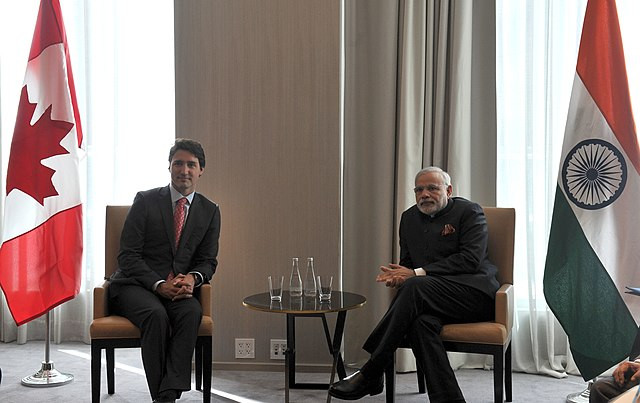The United States finds itself in a delicate position, navigating the diplomatic fallout between Canada and India. The tension stems from Canadian Prime Minister Justin Trudeau's explosive allegations that Indian agents were involved in the assassination of a Sikh Separatist leader on Canadian soil.
The allegations have strained relations between Ottawa and New Delhi, with the U.S. attempting to maintain a balanced stance. The Biden administration has been fostering closer ties with India as a strategic counter to China's growing influence in Asia. This makes the current situation particularly sensitive, as the U.S. seeks to support its North American ally without alienating a key Asian partner.
The U.S. reportedly collaborated closely with Canada in investigating the alleged murder. However, President Biden has yet to make a public statement on the matter. The international community is now keenly watching to see if Trudeau will provide evidence to substantiate his claims and the extent to which U.S.-India relations might be affected.
Since Trudeau's public accusations, diplomatic relations between Canada and India have deteriorated rapidly. Notably, Canada has not received public backing from its allies regarding the allegations. Vivek Dehejia, a professor of economics and an India-Canada policy expert at Carleton University in Ottawa, mentioned that Canadian officials had expected unwavering support from their allies, especially the U.S. However, the response has been more muted than anticipated.
National Security Adviser Jake Sullivan recently expressed support for Canada's investigative efforts and mentioned that the U.S. has been in communication with the Indian government. Secretary of State Antony Blinken urged India to cooperate with the ongoing investigation and emphasized the importance of accountability.
The Washington Post reported that senior officials from the Five Eyes intelligence alliance, which includes the U.S., were briefed about the allegations ahead of the G20 summit in New Delhi. Yet, no public statements were made by leaders from the alliance's member countries.
The allegations have also stirred domestic debates in Canada. Omer Aziz, a former foreign policy advisor for Trudeau's administration, criticized Ottawa's foreign policy approach towards South Asia. He suggested that domestic diaspora politics, particularly the influence of the Sikh diaspora in Canada, have overshadowed foreign policy decisions.
In India, the allegations have unified an otherwise divided political landscape. Both the ruling party and the opposition have rejected Trudeau's claims, recalling past incidents linked to Sikh separatists, including the assassination of former Prime Minister Indira Gandhi and the Air India bombing.
The onus now lies on Trudeau to disclose the source of the intelligence that led to the public accusations. While he reiterated his claims, an unnamed senior Canadian government source revealed to Reuters that Ottawa collaborated "very closely" with the U.S. on the intelligence assessment.
As tensions escalate, with India taking measures such as suspending new visas for Canadians and expelling a Canadian diplomat, the U.S. may find itself playing a pivotal role in mediating the dispute.





